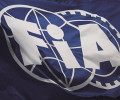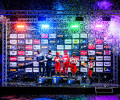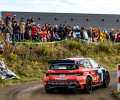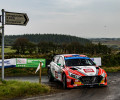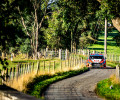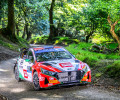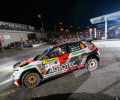Lappi lands Latvia ERC gold as Černy bags ERC Junior spoils
02.02.14
Day report: 2014 FIA European Rally Championship, round two of 12 - Rally Liepāja (Latvia)
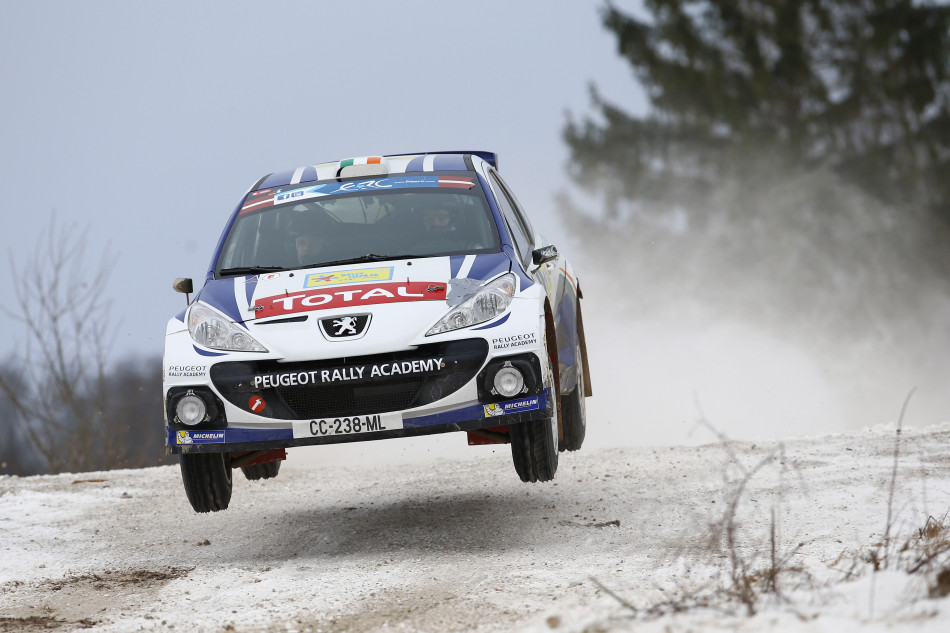
Esapekka Lappi began his 2014 FIA European Rally Championship campaign in style with a thrilling victory in the Latvian ice and snow as Jan Černý shared the limelight by claiming the inaugural ERC Junior spoils on Rally Liepāja.
Glamour model Inessa Tushkanova also had reason to celebrate after she won the ERC Ladies’ Trophy in 28th overall and ninth in the ERC Production Car Cup category. Elsewhere, Latvian Jānis Vorobjovs clinched the Production Car spoils outright with young Russian star Vasily Gryazin earning the Colin McRae ERC Flat Out Trophy after he finished second overall behind Lappi.
The ERC Ice Master accolade was also settled in Latvia with Formula One race winner Robert Kubica landing the coveted award after the points he scored winning the ERC season-opener in Austria proved sufficient. The Pole, who wasn’t competing in Latvia, still tops the ERC drivers’ standings, albeit now level on 39 points with Lappi. Gryazin is two points adrift.
Driving a ŠKODA Motorsport Fabia Super 2000 on Michelin tyres, Lappi began Sunday’s six stages with a slender 2.6-second lead over Gryazin. But the Finn was immediately playing catch-up when Gryazin outgunned him through this morning’s opening stage. Lappi, co-driven by fellow Finn Janne Ferm, retaliated on the very next test. And while Gryazin was never able to get back on terms, thanks in part to a gearbox glitch on his Pirelli-shod Ford Fiesta S2000, which he shared with co-driver Dmitry Chumak, the 20-year-old’s outstanding run belied his lack of experience.
But it was Lappi, already a two-time winner in the ERC, who came out on top with a 34.7s winning margin at the finish in Liepāja this evening. “It was the perfect weekend with no problems at all and it was nice to start the season like this,” said Lappi, 23. “We were in fighting mode to get a victory and thanks to Vasily for the fight. Yesterday we had more snow than the other guys at the back so I had to be cautious not to do mistakes because of this. Today the road conditions were more equal and it was good to push because we had a clean line all the time. It was also a good learning process for me. I also have to thank my team and Michelin for great tyres.”
Behind Gryazin, Craig Breen overcame set-up woes to open his 2014 ERC account with third place on what is likely to be his final appearance in his Peugeot Rally Academy 207 Super 2000 before he switches to a 208 T16 for next month’s Acropolis Rally. Kajetan Kajetanowicz took fourth for LOTOS Rally Team in his Ford Fiesta R5 with Sepp Wiegand completing the top five for ŠKODA AUTO Deutschland after winning stage 11. Like fellow youngster Breen, Wiegand was unable to recover the time lost on day one due to road position and set-up issues.
A damaged engine prevented Bryan Bouffier (Citroën DS3 RRC) from restarting following his exit from the lead on Saturday morning. Engine woes also meant there was no return for Marco Tempestini. Jaroslav Orsák retired with a broken flywheel on stage 11, while fellow Czech Jaromír Tarabus crashed out on stage nine.
ERC Production Car Cup: Local ace Vorobjovs grabs victory
Jānis Vorobjovs claimed what appeared to be an unlikely FIA ERC Production Car Cup win when he completed leg one in fourth place and more than one minute off the lead. But one by one his rivals hit trouble and the Latvian veteran came out on top. Siim Plangi, who was quickest outright on stage seven, was excluded from the lead for exceeding the maximum lateness permitted under the rally rules when he arrived too late to collect his car from the overnight parc férme. Mārtinš Svilis stopped on stage nine with a broken wheel, while an off on stage seven left Vitaliy Pushkar’s Mitsubishi Lancer with damaged rear suspension, although the Ukrainian eventually recovered to finish in second place with Stanislav Travnikov completing the podium. Martynas Samuitis finished in fourth, Martin Hudec took fifth, Hermann Neubauer was seventh after losing time in the loose snow on Saturday, and Łukasz Kabaciński came home eighth. However, there was frustration for Kornél Lukács (broken wheel) and András Hadik (engine fire), who both failed to go the distance.
ERC Junior Championship: Černý makes history with Latvia triumph
Czech rising star Jan Černý made history by winning the opening round of the Michelin-supported FIA ERC Junior Championship alongside co-driver and compatriot Pavel Kohout. While they led for all but one stage in their Peugeot 208 R2, the competition was intense with six different drivers taking stage wins in four different makes of car.
“I am really happy because before the race we really wanted to win this rally in the new ERC Junior championship and it’s a dream come true,” said Černý, who also bagged ERC 2WD honours. “It was a very good rally and we’re really happy. A big thank you to Eurosport Events and the FIA to make this great project.”
Finn Risto Immonen, who took three stage wins in his Citroën C2R2, remained in contention for victory for much of the rally but ultimately settled for second. Norway’s Petter Kristiansen, another stage winner, was a strong third in a ŠKODA Fabia with Mattias Olsson overcoming myriad mechanical issues to finish fourth with a brace of stage bests. Italian Andrea Crugnola took fifth with Pole Aleks Zawada also impressing in sixth. Jean-Mathieu Leandri, Chris Ingram and Fabrizio Andolfi completed the list of finishers.
Steve Røkland, who led for a time on Saturday, retired when he went off the road on stage eight. Stéphane Lefebvre was in third, having just bagged his second straight stage win when engine failure put him out on stage nine. Kevin van Deijne restarted on Sunday after stopping with a broken gearbox on leg one but crashed out. Marijan Griebel inflicted considerable damage to his Opel ADAM crashing on stage one, while electrical failure forced Florin Tincescu into retirement prior to stage four. Tomáš Pospíšílik was two stages into his first ever rally when he went out.
In total, fifteen drivers, representing 11 different countries, took the start and all but six completed the 12 demanding ice and snow-coated stages.

 Facebook
Facebook Twitter
Twitter